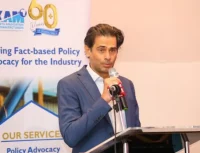[dropcap]T[/dropcap]he level of drug abuse and alcoholism in the public service has reached career threatening levels, Ministry of Public Service, Youth and Gender Affairs Principal Secretary Lillian Mbogo-Omollo has revealed, which is negatively impacting on the health, safety and productivity.
She singled a survey by the National Campaign Against Alcohol and Drug Abuse Authority (NACADA) that had established alcohol abuse among employees in the public sector stood at 57.9 percent, higher than the National average of 39.2 percent. This means nearly 400,000 out of the 700,000 civil servants are addicted to drugs or alcohol.
It has also emerged that the Directorate of Public Service Management (DPSM) at the Ministry is grappling with unanticipated addiction by public servants: gambling and social media. With the explosion of smart phones, tablets, iPods and iPads, the Ministry is also worried that a growing number of public servants were getting hooked to salacious sites and images on the internet.
And in a radical policy shift, Public Servants battling mild and severe substance and drug addiction will now be entitled to treatment and rehabilitation rather than disciplinary action. The Public Service Substance Abuse Workplace Policy, 2017, Ms Mbogo-Omollo said, aims at maintaining an alcohol and drug free, healthy and productive workforce.
It recognizes substance addiction as medical conditions where those afflicted can be rehabilitated back to productivity. The new policy targets public officers at the National and County levels attached to the country’s disciplined forces, the Teacher’s Service Commission (TSC), Judicial Service Commission (JSC), State Corporations, public universities and other learning institutions. The country has an estimated 700,000 workers in public service.
READ: The link between betting and growing suicides in Kenya
SEE: Nation Media Group CEO resigns
In a speech read on her behalf by Nakuru Town East Deputy County Commissioner Omar Salat during a Workshop to sensitize Human Resource Managers, Line managers and supervisors in the public service within institutions in the county, Ms Mbogo said the policy had unveiled an ambitious programme to guide the prevention, treatment and management of public servants who are afflicted with various addictions at both levels of Government.
Addressing participants at the workshop, Principal Administrative Secretary – Directorate of Public Service Management (DPSM) Grace Abonyo Otieno said that all public servants seeking treatment against alcohol and drug abuse will not be victimized. The policy, she noted had been tailored to discourage public servants from discharging their duties under the influence of drugs.
ALSO READ: KQ flight attendants arrested with drugs
RELATED: Older civil servants sharper than younger ones
Parliamentary Service Commission (PSC), all Constitutional Commissions, Independent Offices (Auditor General and Controller of Budget), 47 County Service Boards and State Agencies have also been roped into the scheme. “The fight against this menace is a priority as it not only impacts negatively on service delivery but also undermines confidence of Kenyan public employees,” stated the Principal Administrative Secretary.
Evolution of social media and gambling into an online activity was impacting negatively on productivity and social wellbeing of public servants.
Most public servants were overspending and reducing their savings due to gambling. Addiction to the new phenomenon, she said, had increased crime including money laundering, reduced the quality of life and had seen an increase in socioeconomic inequality among public officers.
“Gambling only encourages laziness and drives away public servants from engaging in constructive activity as it gives false hope of quick riches,” she said. “Some people have lost all their money and ended up homeless, as well as driving their families and friends to bankruptcy. Gambling is a social disease, motivated by economic reasons.”
A study by Kansas University and KPMG found that some employees spend up to 80 per cent of office time online. The policy which is aligned with National Campaign against Alcohol and Drug Abuse Authority (NACADA) guidelines will provide guidelines and standards for managing public servants addicted to drugs by putting in place intervention measures.







![President William Ruto during the launch of Climate WorX in Nairobi. [Photo/PCS]](https://businesstoday.co.ke/wp-content/uploads/2024/10/President-William-Ruto-during-the-launch-of-Climate-WorX-in-Nairobi-1-e1727761613802.png)





Leave a comment